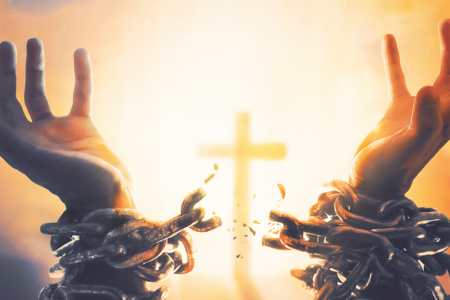The Middle East and Palestinian Dilemma
A burden for Jewish people generally brings with it a genuine interest in and concern for the nation Israel. The Israeli Jew, although home at last after centuries of wandering, finds life very difficult. His new environment, both natural and human, is hostile. The land itself, bleached by the incessant sun and devastated by centuries of war and neglect, responds only grudgingly to his never-ceasing toil. The greater anguish, however, is inflicted by his neighbors. Until recently the most serious threats came from the surrounding Arab states, mainly Syria, Egypt, Jordan, Saudi Arabia, and Lebanon. However, today, as headlines frequently attest, the most violent challenge comes from the Palestinians. New organizations like Al Fatah, Popular Front for the Liberation of Palestine (PFLP), Popular Democratic Front for the Liberation of Palestine (PDFLP), and the umbrella group called The Palestine Liberation Organization (PLO), vie for world attention. New leaders such as Yasir Arafat and Dr. George Habash demand to be heard. Their method comprised of terrorism and violence is unashamedfy admitted. Who are these who quietly slip across the border to kill innocent school children and plant murderous bombs in public places? What is their cause? The answers to these questions is the subject of this brief article.
The Identity Of The Palestinian
In the first place the Palestinian is an Arab. In common with most of Arab society, Arabic is his language; farming and animal husbandry, the backbone of his economy; the extended, male-dominated family, the core of his social order; and Islam, his dominant faith. With his Arab brothers, who populate the vast region from Morocco in the west through Iraq in the east, he reflects with pride on the glorious past when his people enjoyed the most enlightened civilization of the day. Even the Renaissance, which awakened western Europe out of centuries of darkness and laid the foundations for its dynamic present, was ignited by light from the Middle East. Today’s Arab, including the Palestinian, is painfully aware that those golden days are past. The roles of leadership and enlightenment have long since fallen from his hands. Were it not for the vast stores of his oil and the strategic geographical location of his lands (a bridge joining three continents) he would be ignored by today’s world. The military and scientific successes of the West unsettle him. Not only is his pride wounded, but his traditional way of life is threatened. The Arab, therefore, views the West with suspicion if not outright hostility.
At this point it must be remembered that Israel was created by European Jewry. Its social configuration resembles that of dynamic western industrialized peoples rather than that of tradition-bound Arab villagers. The Arab, therefore, looks upon Israel as a beachhead of western ideology threatening his world. Both his injured pride and his deep fear are focused on this intruder, small enough to confront and near enough to attack.
It is necessary to further define the Palestinian in order to distinguish him from other Arabs. That which marks him off from Arab peoples such as Syrians, fraqis, Saudis, and Egyptians is not racial, linguistic, or social; it is purely geographic. It must not be assumed, however, that Palestine is an area having clearly defined borders. Most commonly it is accepted as that area bordered by Lebanon and Syria in the north, the Sinai Desert in the south, the Mediterranean Sea on the West, and desert or the Jordan Valley on the east.
While the term Palestine is used freely today, it is a gross mistake to conclude that this area has enjoyed a long history of independent existence. Contrariwise, there have been but two periods when Palestine was distinct from adjoining lands. The first came at the end of the Second Jewish Revolt in 135 A.D. when Emperor Hadrian changed the name of the Roman province from Judea to Palestina because of his hatred for the rebellious Jews. The second phase of separate Palestinian existence began in the closing days of World War I. It was then that French and British pens, concealed from the rest of the world, were busily engaged in dismembering the crumbling Ottoman Empire. Since France historically had exerted influence in northern Syria, and England was determined to protect her interests in the Suez Canal, it was necessary to divide the Ottoman District of Syria. The name Palestine reappeared after centuries of absence to designate the southern part. Post war treaties accepted this division and the newly formed League of Nations dignified it by assigning to Great Britain mandate authority over Palestine. At this time Palestine included the land on both sides of the Jordan River, Germane to our study is the fact that early in these negotiations (Nov. 1917) the famous Balfour Declaration was announced. This expressed the British conviction that a “homeland for the Jews” should be established between the League of Nations and Great Britain.
By 1923 Palestine was further divided and the part east of the Jordan, now renamed Trans-Jordan, received semi-independence under the Hashimite ruler, Abduilah. In 1946 British protection of Trans-Jordan was terminated and complete independence was granted. The area west of the Jordan River, however, retained both its name (Palestine) and its mandate status until 1948, During this period both Jewish and Arab population in Palestine grew as did the tension between the two communities. The resulting strikes, riots, and bombings brought extreme pressure upon British administration. Twenty thousand British troops were unable to maintain order. When out of frustration, the British announced their intention to terminate the mandate, the United Nations stepped in. After much committee research, in November 1947 the General Assembly voted 33-13 that Palestine be partitioned into two separate states, one Jewish, and the other Arab. This decision was rejected by the Arab nations who almost immediately resorted to war against the resident Jews. In spite of this War (War of Independence) the decision of the U. N. was partially carried out, and the State of Israel was born in May 1948. What was to be a sovereign Palestinian state, occupying the balance of the mandate, died at birth when the allotted land was annexed by Trans-Jordan. Now that Trans-Jordan occupied land on both sides of the Jordan River, its name was changed to the Hashimite Kingdom of Jordan.
The Dilemma Of The Palestinian
Palestinians are thus Arab peoples who are living, or did live, in the area called Palestine. Although precise figures are impossible, it is likely they presently number about 2.5 million. About one million are residents of Jordan, Israel (300,000), and other states. The remaining 1.5 million are classified as refugees (Palestinians who formerly lived in areas now under Israeli control). The continued existence of this large number of homeless people is the primary open sore which continually festers and periodically erupts in horrible acts of terrorism and violence. It is important that we understand what led to the existence of this mass of refugees.
As a result of the War of Independence (1947-1949) about 700,000 Palestinians fled from their homes, It is still debated whether their flight is to be attributed more to Jewish threats or to Arab military strategy. In any case, war generally leads to the displacement of peoples and the existence of refugees. Had the Arab states accepted the partition plan of the United Nations, it is safe to assume that the number of refugees would have been minimal.
During the next 20 years the number of refugees almost doubled (1,344,576 registered in May 1967). This growth, about 45,000 per year, is attributed to several causes: a very high birth rate, failure to report deaths, and infiltration by other Palestinians. As a result of the June War (6 Days War) in 1967 another 350,000 Palestinians abandoned their homes resulting in the approximate number of 1.5 million refugees today.
That the plight of the Palestinian refugee is tragic is undeniable. They are scattered throughout Lebanon, Syria, Jordan, and the Gaza Strip. About 40% live in very humble refugee camps, the rest in villages. Food relief is provided through UNWRA, a United Nations organization established in 1950 for this purpose. The host countries resist any plan to absorb these Palestinians since their existence as hopeless, homeless refugees generates world-wide sympathy for the Arab cause. Only in Jordan has the refugee been accorded citizenship. Here there was little alternative since refugees accounted for one-third of the total population, and all Palestinians for two-thirds. Since Jordan contains well over one million Palestinian citizens it might be argued that Jordan is the Palestinian state of which they dream. In any case, the wretched conditions of the Palestinian refugees are such as to provide fuel for unrest, frustration, killingm and war. As long as the problem of the Palestinian is unresolved, there will be no peace in the area. What possibilities do exist to resolve this problem?
The Options Of The Palestinian
At the risk of oversimplification there appear to be only two reasonable solutions: repatriation and resettlement. Any movement toward peace in the area must proceed along one of these lines or a combination of the two.
Repatriation means that the Palestinian refugees should be allowed to return to their former homes in what is now Israel. This is the demand of the Palestinians and is echoed by the Arab states and others. The solution appears to be as just as it is simple.
The weakness of repatriation is that it would terminate the existence of Israel as a sovereign Jewish state. To settle over a million Arab people—characterized by one of the world’s highest birth rates, in a nation comprised of under 3 million Jews and over 300,000 Arabs—would immediately alter the society and ultimately destroy the state. It must be remembered that the returning Palestinians are by custom, language, and religion, very different from the Israeli Jews. Also it must be considered that the Palestinian, for nearly 30 years has been an avowed enemy of the Jewish state, if not the Jew. Does it make sense to believe that the Palestinian, who earlier abandoned his land rather than to remain as a citizen in a Jewish state, would now return under those same conditions? No responsible Palestinian leader has ever publicly stated his willingness to accept the continued existence of Israel as part of a peaceful settlement. Repatriation, by implication if not by explicit statement, carries with it the unification of all Palestine under an Arab majority. Jews who were living there prior to 1947 could remain but only as a cooperating minority. Jews who have immigrated since 1947 would be forced to resettle. Recalling the widespread history of anti-Semitism, this could prove difficult.
In the mind of this writer, the advocates of repatriation fail to give adequate attention to two considerations of history: Jewish rights to Palestine and the total absence of either political or ethnic Palestinian identity. Humanitarian and historical arguments favoring the Jewish rights to sovereignty in the ancestral land of Palestine have been ignored. The reasoning which led to the Balfour Declaration of 1917 and again to the United Nations decision in 1947, although rejected, has not been refuted. The lack of historical evidence to sustain the concept of a separate Arab Palestine has been commented on earlier in this article. Suffice to mention here, is the fact that during the centuries of Arab control, Jerusalem was always subject to authority emanating from Damascus, Cairo, Baghdad or Istanbul.
The great strength of the plea for repatriation is the emotional impact which it generates. Who cannot feel deep sympathy for women and children living in hovels who want nothing more than to go home? This sympathy is deepened with the realization that frequently they are used as mere pawns for political purposes by their own leaders.
The alternate solution to the Palestinian problem is resettlement. This calls for assistance to be given to the refugees enabling them to find permanent homes in the area, some in Israel but most in the nearby Arab states. Those having lost land in what today is Israel would receive from the Israeli government fair compensation for their loss. Resettlement is strongly urged by the Israelis but totally rejected by the Palestinians and other Arabs. While this does provide homes and meaningful life to the refugees, it carries with it the recognition of the State of Israel and the sacrifice of former Arab lands. At present no Palestinian leader is willing to accept either the State or the sacrifice.
In support of resettlement there are two primary considerations. In the first place, this policy has been implemented effectively elsewhere. One must not view the refugee to be unique to Palestine. Since World War Ii the United Nations has dealt with over 40 million refugees. When the Indian subcontinent was divided into two independent states, India and Pakistan, millions of refugees had to be resettled. China, Korea, Viet Nam, as well as countries in Eastern Europe and Africa, have all experienced the refugee problem. Only in the Middle East, however, has there been unyielding resistance to resettlement and absorption.
The second consideration is the fact that Israel has absorbed 500,000 Jews who emigrated from Arab lands leaving their houses and possessions behind. If tiny Israel can absorb 500,000 Jews who fled Arab lands, cannot the much larger Arab states make room for a proportionately smaller number of displaced Arabs? The question is rhetorical. The obstacle has never been the lack of space.
The Palestinian stands in the middle of today’s most explosive crisis. He is the victim of long-repressed Jewish nationalism and wounded Arab pride, Perhaps Dr. Weizmann was correct when he spoke of the Jewish-Arab conflict “as a clash of rights for which a solution could be found only on the lines of least injustice, and where no perfect justice was possible.”
The Need Of The Palestinian
To the evangelical Christian the Palestinian issue has further ramifications. The Bible, our sole authority, clearly teaches that Palestine is part of the land promised by God to the descendents of Jacob (the Jews). It is plainly evident that when the Messiah (Jesus Christ) comes again to Jerusalem, all of the seed of Israel will be restored to the Land and blessed. However, our affirmation of the certain glorious future must not blind us to the suffering of the present. Neither should believing in the ultimate divine right of the Jew to the Land blind us to the immediate human needs of the Palestinian. He is a tragic figure, victimized mostly by his own people. Let not the evangelical community add to that abuse by treating him with apathy or worse, antipathy. Did not Christ die for Ishmael as well as for Isaac? Is it not true that the root problem of the frustrated terrorist slipping quietly across the border is the same as that of his intended victim? The hour is too late and the stakes too high to allow our biases, right or wrong, to limit the sharing of the Gospel.






